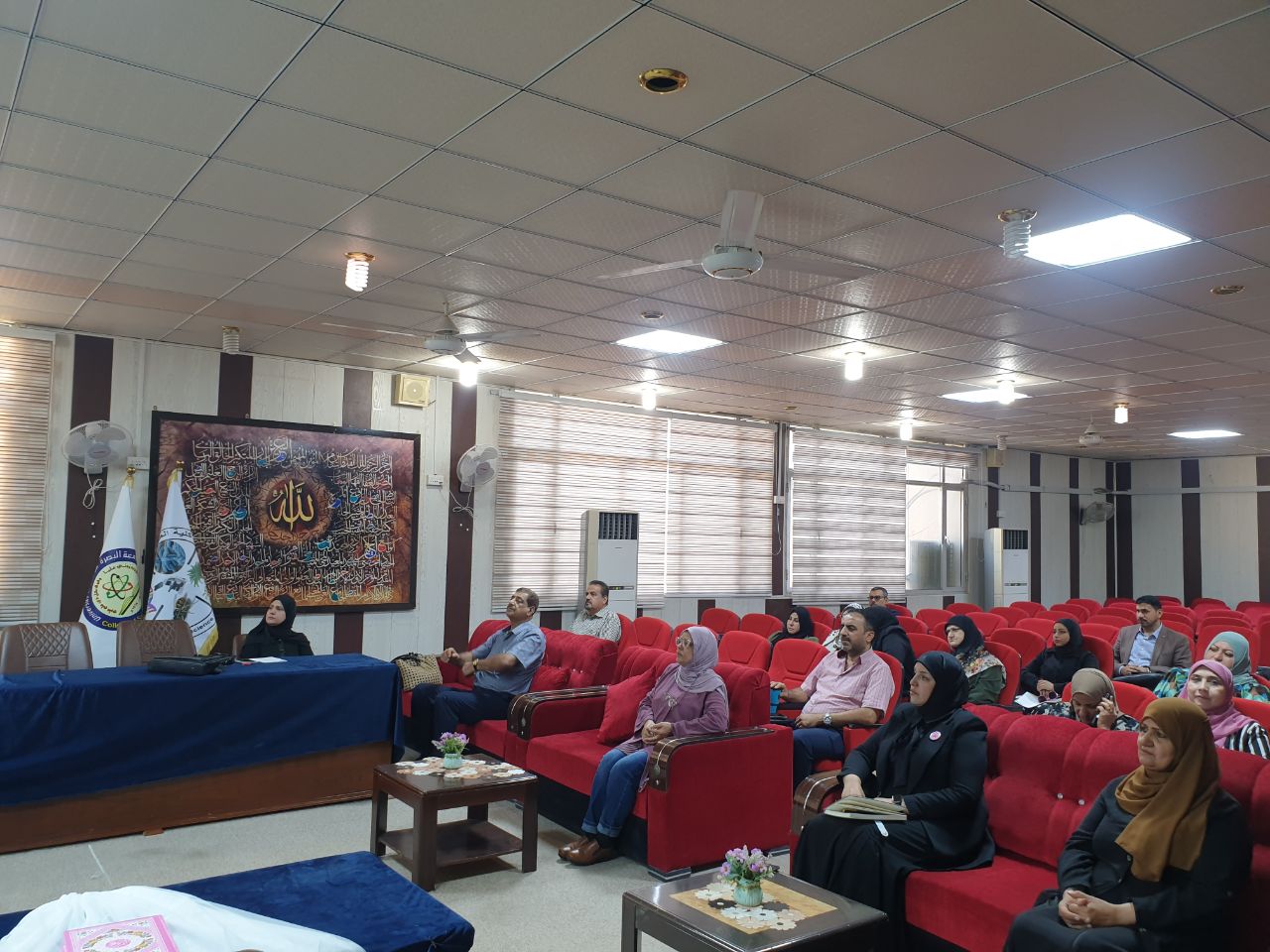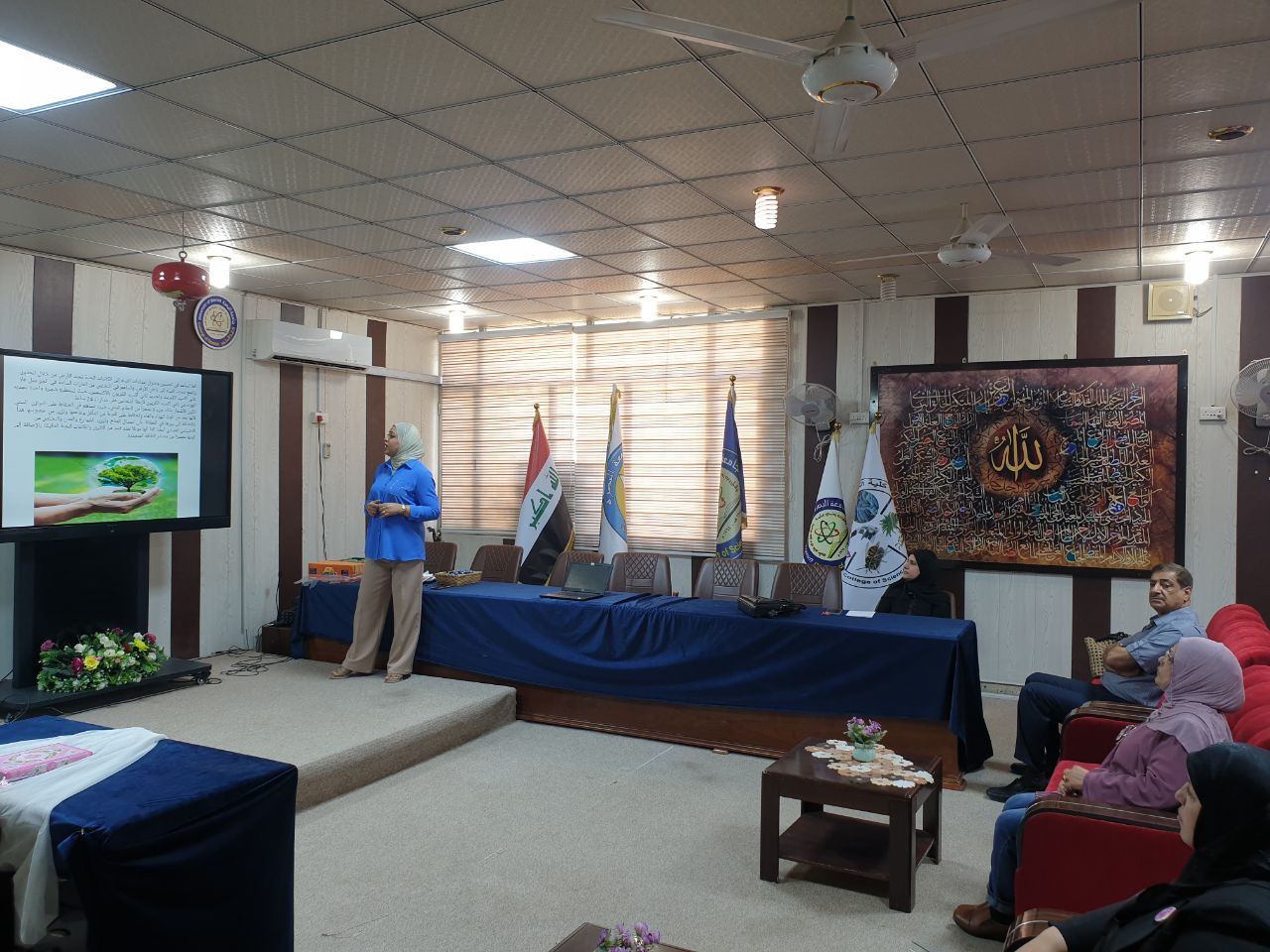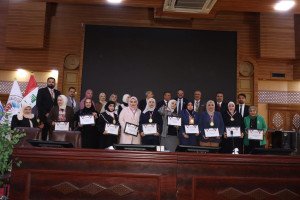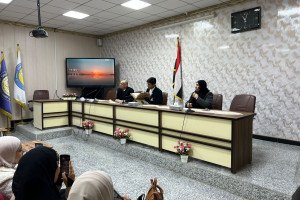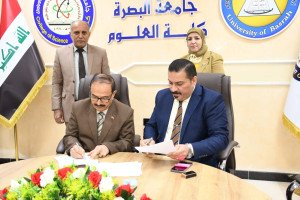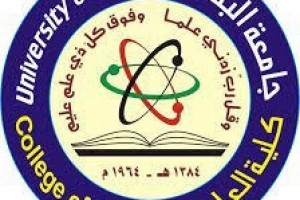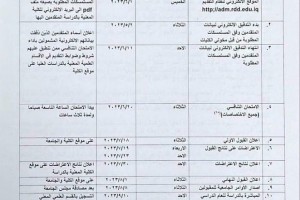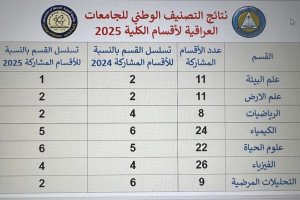
The College of Science at the University of Basra organized a scientific lecture on "The Role of Afforestation in Improving Quality of Life in Cities: A Healthy and Sustainable Environment." The lecture, presented by Dr. Afak Mahdi Jaber, emphasized that trees are the lungs of the Earth and the producers of the gas of life, oxygen, which is vital for both humans and animals. An adult requires eight trees to meet their annual oxygen needs, and a single tree can supply oxygen for four adults daily. In the absence or scarcity of vegetation, all life is at risk, highlighting the crucial role trees play in maintaining ecological balance and enhancing the environmental and health quality of life.
The lecture addressed the issue of declining vegetation cover in Iraq and the grave risks associated with significant air pollution, global warming, land erosion, and desertification due to the conversion of agricultural land into residential areas. It aimed to promote and increase environmental awareness regarding the planting of trees to combat desertification and reduce temperatures by (5-10) degrees Celsius. Trees also play a significant role in absorbing air pollutants such as dust, carbon dioxide, and sulfur oxides, cooling the atmosphere and promoting biodiversity, as they provide habitats for many birds, insects, and microorganisms. Additionally, trees enhance the beauty of places and increase property values.
The lecture concluded with a recommendation to disseminate the culture of afforestation among all community members, both young and old, and to raise awareness about the importance and dangers of the current pollution levels in Iraq, which threaten human health. It called for collective action toward a greener Iraq.

